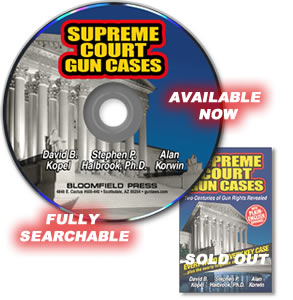
| Home | Books | National Directory | Position Papers | Alan’s Blog | FAQ | New Stuff | Search |
|
Supreme Court Gun Casesby Dave Kopel, Stephen P. Halbrook, Alan Korwin "The D.C. v. Heller Case -- Eyewitness Post-Game Report, March 18, 2008 " |
 on gun laws and other topics.
|


